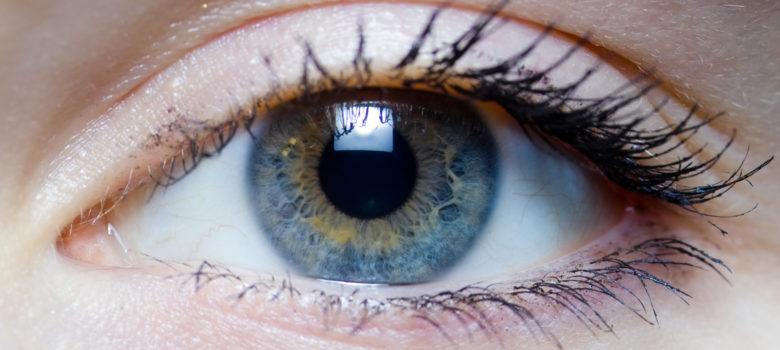

Effects of Multiple Sclerosis on Vision
by PNI Experts
BY BARBARA S. GIESSER, MD & HOWARD R. KRAUSS, MD
Many neurologic disorders can affect vision. The branch of Ophthalmology that deals with visual problems that are due to involvement of the nervous system is called Neuro-Ophthalmology. Neuro-ophthalmologists and neurologists work together to diagnose, treat and monitor persons with these visual disorders.
A neurologic condition that commonly produces visual symptoms is Multiple Sclerosis (MS). In MS, the immune system “goes rogue”, and starts to attack nerves in the central nervous system, which includes the brain, spinal cord and optic nerve.
Visual symptoms of MS
There are several visual symptoms that may occur as a result of MS.
- There may be temporary loss of vision, usually just in one eye, due to inflammation of the optic nerve, known as optic neuritis, which is a common first symptom of MS.
- Other visual symptoms in persons with MS may include double vision, “bouncing vision” or vision that gets worse when the person is overheated.
A disease that is similar to MS, Neuromyelitis Optica (NMO), or Neuromyelitis Optica Spectrum Disorder (NMOSD), can also produce optic neuritis, and other neurologic symptoms that also occur in people with MS. However, the treatments for NMO/NMOSD are somewhat different than the treatments for MS, so it is important to differentiate between them and make an accurate diagnosis. Blood tests can be done to look for a certain antibody that is associated with NMO/NMOSD that is not present in the blood of persons with MS.
Evaluation of vision
The neuro-ophthalmologic evaluation of patients with suspected MS or NMO/NMOSD customarily includes:
- Quantitative testing of central and peripheral vision
- Evaluation of pupil reactions
- Sensorimotor examination of eye alignment and coordination
- Complete examination of the eyes, optic nerve
- Retinal photographic studies
A newer modality of testing proving to be extremely useful in diagnostic and prognostic specificity, known as Optical Coherence Tomography (OCT). OCT is utilized to quantitatively and qualitatively evaluate the optic nerve and retina, with an accuracy of +/- 4 microns, which is 100 times the sensitivity of MRI (although it is by no means a substitute for MRI which is able to evaluate the entirety of the brain and spinal cord).
Disease modifying treatments (DMTs)
There are many disease modifying treatments (DMTs) for MS and NMO/NMOSD, that help to reduce recurrence of clinical attacks, and areas of future nerve damage and inflammation. It is important to monitor patients to see if these treatments are working.
The parameters that are monitored are:
- Clinical – how is the patient feeling, what does their neurologic exam look like, how well are they functioning?
- Radiologic – are there new or inflamed areas of nerve damage on MRIs? and
- Ophthalmologic – how is the person’s vision and what does their neuro-ophthalmologic exam show?
OCT is a very valuable test not only in helping to diagnose nerve damage that may not have produced a symptom or be visible on eye exam, but also in monitoring response to DMT. OCT evidence of nerve damage correlates with nerve damage in the brain and can be an additional marker of ongoing disease activity or stability.
At Pacific Neuroscience Institute, the collaborative relationship between the Neurologist and the Neuro-ophthalmologist has proven to be of great benefit to patients in the ongoing evaluation and management of their neurologic disorders.
About the Authors
Barbara S. Giesser, MD

Barbara S. Giesser, FAAN, FANA, is an internationally recognized clinician and award-winning educator who has specialized in the care of persons with Multiple Sclerosis since 1982. Her approach to the diagnosis & management of persons with MS, and allied demyelinating diseases of the central nervous system combines state of the art diagnostics and a personalized medication plan for each patient with an emphasis on integrating lifestyle and wellness strategies into the neurologic treatment plan. Dr. Giesser has been listed in “Best Doctors in America “since 2005, and in 2018 was honored by the National Multiple Sclerosis Society by her election to their Healthcare Professional Volunteer Hall of Fame.
Howard R. Krauss, MD

Howard Krauss, MD, is one of the four founders of Pacific Neuroscience Institute, and a Director of the Pacific Eye, Ear and Skull Base Center. He is a surgical neuro-ophthalmologist specializing in diagnostic neuro-ophthalmology, including visual field analysis and ocular coherence tomography, as well as strabismus, orbital and anterior skull base surgery. He cares for all varieties of eye and vision problems including eyelid disorders, ocular and orbital pain, double vision, neurologic or brain disorders, circulatory disorders and inflammation, injury and tumors of the eye socket (orbit), face, head, or brain. He offers comprehensive ophthalmic services, as well as the more complex specialty procedures including oculoplastic surgery, adult strabismus surgery and orbital and anterior skull base surgery. Dr. Krauss’ philosophy is to deliver the best eye care and vision solutions while considering the needs and preferences of his patients.
Clinics
Multiple Sclerosis: 310-582-7613 | pacificneuro.org/MS
Neuro-ophthalmology: 310-829-8701 | Eye & Vision
2125 Arizona Ave.
Santa Monica, CA 90404
About the Author
PNI Experts
Last updated: July 2nd, 2021